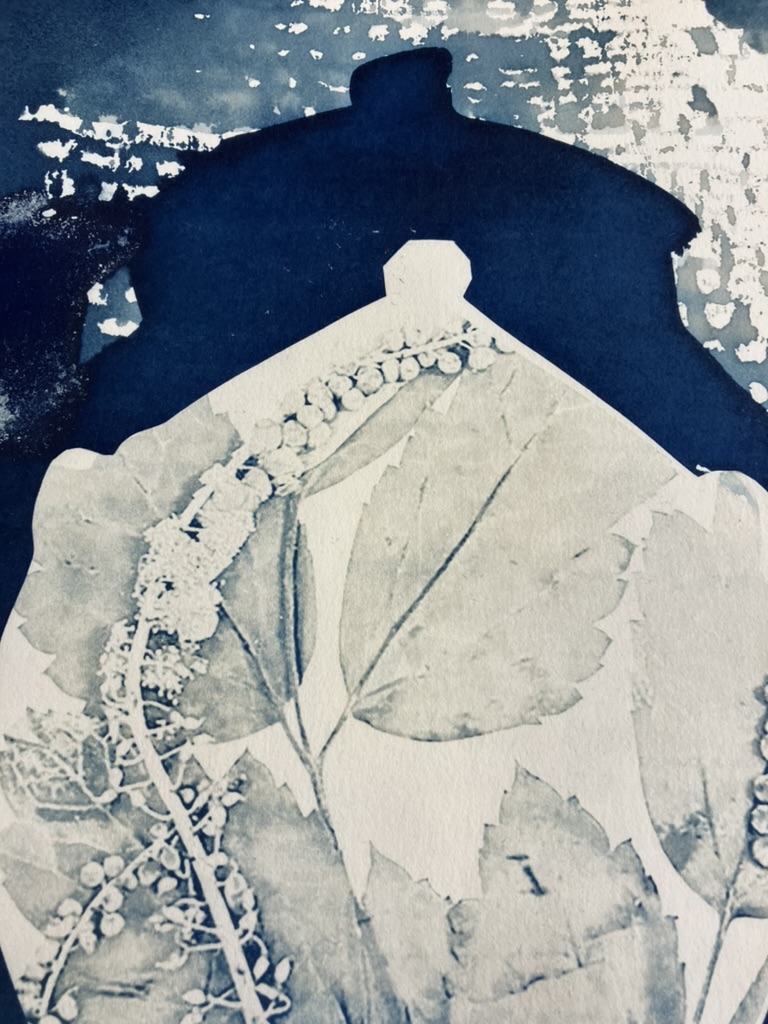I’ve been a career artist for over a decade and decided to return to get my MFA in large part because I sought support in effectively blending my social justice work with my studio practice. Concurrent to my masters work in glass in the Newcomb Art Department, I’m a Mellon Fellow, which in my case means I’m pursuing a collaboration of community engaged research with a group of abortion doulas. The Changemaker Catalyst Award funded my enrollment in an Abortifacient Materia Medica course taught by herbalist and activist Daena Horner, who is my primary Mellon community partner.

The Mellon Fellowship is flexible and self built; as fellows we reach out to people who are doing work we admire and co-create projects that will be supportive for the community. As partners, Daena and I are exploring the intersection of visual art, herbal education and activism. We are both pro-abortion. We’re aware that the anti-abortion camp has long been winning visual culture battles and we are generating a conversation around how we make and disseminate art about abortion. This conversation is happening first between ourselves, then among other vested stakeholders, and ideally will be hosted in a wide public sphere. We hope it will lead to making a body of work about abortion that helps normalize herbal and home abortion.
The first step of our collaboration has been for me to take the courses that Daena offers so that I’m familiar with what she is already offering our communities. From February to June this year she facilitated an Abortifacient Materia Medica course for the first time. As an herbalist I’ve built relationships with plants in many different ways; this was a generous, supportive communal experience that had a profound impact on each of the participants, very much including myself. For one month each, we worked with Pennyroyal, Cotton Root, Black Cohosh and Mugwort.


At the beginning of each month we each received a package with tinctures, teas, essence formulas and journals. Together and on our own we used the plants in a variety of ways, taking notes about our experiences, sharing what we noticed during our meetings. Daena taught classes on the chemical compounds and historical uses of the plants and shared packets of research for us to keep. She also led meditations with each plant. Each of us had different experiences, as is the way with plant medicine. It was a supportive and safe container to use these plants in new ways; these plants have a lot of misinformation around them because they are connected to abortion, so it was very helpful to be able to sort through the information and science together with a group of practitioners who were bringing various knowledge to the table.
 I’m grateful for the Taylor Center’s support in taking an important step to building the foundation of my collaboration with Daena, expanding my network among herbalists and doulas, and allowing me to take this well constructed and lovingly prepared course. Using these plants in community has already begun to impact my ideas for making art about them, what is important to share about them and what is perhaps better left out of public scrutiny. Our collaboration in the class is shifting the conversation around our Mellon project, changing the way we’re conceptualizing community support. I look forward to sharing what we co-create!
I’m grateful for the Taylor Center’s support in taking an important step to building the foundation of my collaboration with Daena, expanding my network among herbalists and doulas, and allowing me to take this well constructed and lovingly prepared course. Using these plants in community has already begun to impact my ideas for making art about them, what is important to share about them and what is perhaps better left out of public scrutiny. Our collaboration in the class is shifting the conversation around our Mellon project, changing the way we’re conceptualizing community support. I look forward to sharing what we co-create!
You can follow and support Daena Horner’s work on Instagram @holistic.abortions


